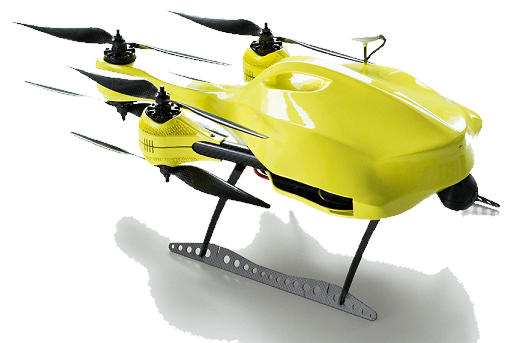EmergencyMedicine.in
EMinside
Favorites
Recommended
ATLS India - Advanced Trauma Life Support
 atls.in
atls.in 
American College of Emergency Physicians
 acep.org
acep.org
College of Emergency Medicine, United Kingdom
 rcem.ac.uk
rcem.ac.uk
Australasian College of Emergency Emergency Medicine
 acem.org.au
acem.org.au
 atls.in
atls.in 
American College of Emergency Physicians
 acep.org
acep.orgCollege of Emergency Medicine, United Kingdom
 rcem.ac.uk
rcem.ac.ukAustralasian College of Emergency Emergency Medicine
 acem.org.au
acem.org.auLet Others Know
Verified Site
Visitor Stats
Ambulance Drones
Ambulance Drones
12-Dec-2014
Editors Desk

Ambulance Drone
Speeding up emergency medical response can prevent deaths and accelerate recovery dramatically. Automated External Defibrillator (AED) and ACLS medications are compact enough to be carried by a drone. The main reason for this high number of deaths after cardiac arrest is the relatively slow response time of emergency services (10 minutes). Brain death and permanent death start to occur in just 4 to 6 minutes.
With the Ambulance Drone, it is possible to deliver defibrillation to any patient in a 12 square kilometer area within 1 minute. At that speed, survival rates can be as high as 80%. Secondly, the incorporation of a two-way, video supported, communication channel in the drone between 112 operators and the first responders will improve first care. Successful AED usage by lay-persons is currently at 20%. With personalized instructions and communication on the Ambulance Drone, this can be increased to 90%.
In short, the Ambulance Drone helps to save lives by extending existing emergency infrastructure with a network of fast and compact UAVs capable of bringing emergency supplies and establishing communication, anywhere.
Alec Momont
Design Engineer
Netherlands
Above extract taken from Drones for Good
More details - Ambulance Drone Facebook Page
(If the video does not load, click here Ambulance Drone)
12-Dec-2014
Editors Desk


Ambulance Drone
Speeding up emergency medical response can prevent deaths and accelerate recovery dramatically. Automated External Defibrillator (AED) and ACLS medications are compact enough to be carried by a drone. The main reason for this high number of deaths after cardiac arrest is the relatively slow response time of emergency services (10 minutes). Brain death and permanent death start to occur in just 4 to 6 minutes.
With the Ambulance Drone, it is possible to deliver defibrillation to any patient in a 12 square kilometer area within 1 minute. At that speed, survival rates can be as high as 80%. Secondly, the incorporation of a two-way, video supported, communication channel in the drone between 112 operators and the first responders will improve first care. Successful AED usage by lay-persons is currently at 20%. With personalized instructions and communication on the Ambulance Drone, this can be increased to 90%.
In short, the Ambulance Drone helps to save lives by extending existing emergency infrastructure with a network of fast and compact UAVs capable of bringing emergency supplies and establishing communication, anywhere.
Alec Momont
Design Engineer
Netherlands
Above extract taken from Drones for Good
More details - Ambulance Drone Facebook Page
(If the video does not load, click here Ambulance Drone)
Comments
No Comments have been Posted.
Post Comment
Please Login to Post a Comment.







